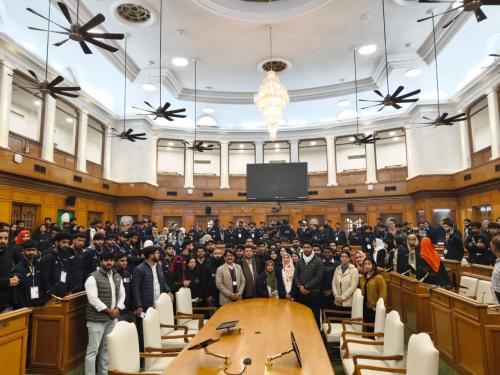VINOD MIRANI The reality has dawned on cinema managements in the US, UK and a few other countries that somewhere along the line, they have lost their patrons. So many reasons, one of them being the Covid-19 pandemic. The second being the lower number of films due to curtailed production activities, again as a result of the Covid-19 lockdown, and the third and most telling being the high admission rates. Modern businesses claim to have the biggest think tanks making decisions for them. They were helpless during the lockdowns and expected the moviegoers to return to cinemas as if it was all hunky-dory all over again. Now, this kind of total suspension of all trades and industries has never happened in any professional's lifetime, so one needs native intelligence, a sixth sense, to gauge the after-effects. Post-lockdown, the cinemas reopened as if nothing had changed. The same high admission rates, popcorn at the price of almonds and pistachios, and cold drinks that tasted like nothing. Sadly, nobody bothered to gauge the state of the economy, the job losses, the financial setbacks that the people suffered in the nearly two years when the lockdowns were in force. The reluctance of people to come to the cinema was beyond the understanding of the business management wizards. Some fell back on jargon taught in business schools; called it a correction, the phrase often used for stock market upheavals! The word means nothing in relation to the film industry, the way it works, and its economics. Films work or don't work depending on various counts. Here, the trends change, stars change, the makers change, and the audience changes; nothing else changes. The Covid-19 lockdown had caused job losses, others were forced to work at reduced salaries, while some lost their life's earnings on the treatment of near and dear ones. The middle and the working class had no surplus money to squander on going to the cinema, a last priority even otherwise. The situation is bad the world over when it comes to the film exhibition trade. As if the Covid-19 pandemic had not done enough damage to the business, the world is now faced with famines, floods and forest fires and inflation is affecting just about every country in the world. All this spells doom for the cinema business. Most of all, many may have learnt to save for the rainy day, save for other such setbacks in life. Cinema-going became even less of a priority than it ever was. And the cinema business failed to read the situation, without realising that the pre- and post-lockdown eras were not the same. It was a life-changing phase for the world. A critic went to see the last Bond film at a cinema in Bandra, Mumbai. He was happy that the ticket rate was a reasonable Rs 180. It was a late-night show, expected to get over close to 2 a.m., and he found the film to be boring. In the interval, he thought of buying a cup of tea to help him sustain through the second half, post interval, and stop him from dozing off. He ended up not buying the cup of tea. It was priced at Rs 250. That much for a cup of machine-dispensed tea? Is this what you do to your patron? The critic lost his sleep, anyway! In India, since the inception of the trend of multiplex cinemas, more chain owners have closed shop than new entrants. From the Adlabs cinemas, which, along with Fame Cinemas of Shringar Films, set up one of the first multiplexes in Mumbai, to the Reliance-backed Big Cinemas, Zee, Carnival and many smaller operators have packed up. Those who remained in contention went into an overdrive, adding more screens without knowing what the future held for them. Now, two major chains are in the process of merging into one. We will have to wait and watch as the matter has been referred to the Competition Commission of India (CCI). It was recently announced that the UK-based second biggest cinema chain in the world, Cineworld's debt-ridden Regal cinemas face bankruptcy for the second time in the last few years. The problem is the same faced by cinemas around the world: lack of footfalls. Now, a little late in the day, cinema managements want somehow to bring the audience back to the halls. Efforts are being made, but they look half-hearted. In the UK, they have realised that there is a Father's Day, a Friendship Day, and so on. So, they went ahead and created a National Cinema Day! And what was special about this day, celebrated on September 3? Cinemas in the US were to sell tickets at admission rate of $3; in the UK the rate was slated to be 3. Azerbaijan cinemas also joined the league and the admission there was fixed in the local currency at 3 manats. Depending on who owns the cinema chains, some other countries were expected to join in. Because be it the US or the UK, the audience is missing. So, what concessions did Indian multiplex chains offer to their patrons? Nothing really. There was no National Cinema Day on September 3 in India. Even if cinemas were to join the National Cinema Day, there was no movie slated for release on that date. The film that was produced for a big-screen release on September 3, Akshay Kumar-starrer 'Cuttputlli', has had an OTT release instead! It seems reasonable to settle for a lump sum from an OTT platform rather than wait for piecemeal returns from the cinemas, which keeps the lion's share anyway. Yes, PVR Cinemas did try to tempt viewers by offering one ticket free on buying three for 'Laal Singh Chaddha' and 'Raksha Bandhan'. Now, that was rather miserly and did not work. Also, this ploy was tried long ago by the management of Fame Adlabs, which offered the one-on-one deal every Tuesday. That was the day when film viewing traditionally showed a major drop. To follow the initiative of the West, cinemas around the country have now decided to celebrate National Cinema Day on Friday, September 16. Strangely, there is no major release on this date and the kind of new films due may not interest a viewer even if admission were made free! Yes, in another attempt to bring at least some audiences in, the cinemas have taken recourse to the age-old single-screen cinema practice of reviving some big-screen old films, such as 'Avatar', 'Spiderman: No Way Home' and 'ET: The Extra Terrestrial'. I think these stopgap efforts may not be enough. Cinemas can start with being reasonable with admission rates. Because, no audience, no popcorn and cola buyers.
Desperate times, yet cinemas find patchy solutions
- by Rinku
- September 04, 2022 2 minutes

Cinema hall.
Your Stars - Sept. 2 - Sept. 15
September 02, 2022









